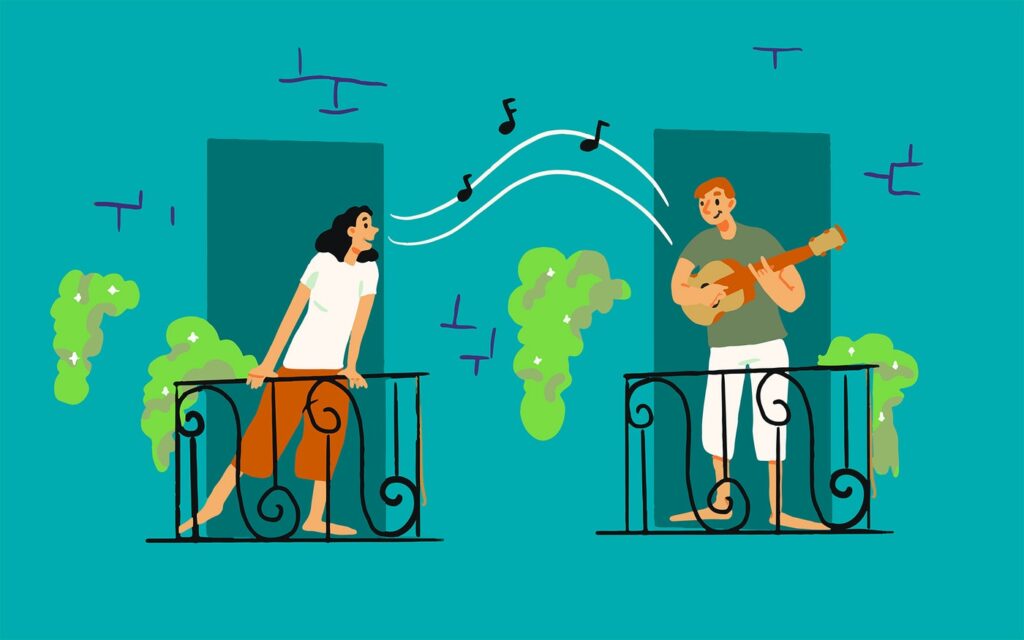Friends,
The last year has been difficult for many people, as unprecedented uncertainty has led to alarming increases in anxiety. I’ve asked Dr Carissa Wott, a clinical psychologist who specializes in anxiety, to give us some guidance on practical ways we can manage our feelings of anxiety to allow us to flourish in the year ahead.
Blessings,
Kyle Burkholder
Pastor | Covenant Church
Three Ways to Better Manage Anxiety
Feelings of anxiety can be overwhelming at times and can make it difficult to fully engage in your daily life. Below is a discussion of three strategies to help you better manage anxiety when it pops up during your day. It is my hope that you find some, or all, of these tips helpful as you walk in the both the uncertainty of and hope for the year ahead.
1. Mindfulness.
Mindfulness is a skill that allows you to turn your mind to the present moment and allows space for whatever that moment may hold. This is quite different from meditation where the goal is to remove distractions and empty your mind. You do not have to sit quietly in a dedicated space with no interruptions for 30 minutes to practice mindfulness! Mindfulness at its core is simply paying attention, on purpose, in the present, without judgment.
 It is the act of being fully present with, and aware of, the current moment, no matter what that moment holds. How can mindfulness help with anxiety? Anxiety does not live in the present moment – it lives in thoughts about the future (or in thoughts about how what happened in the past might negatively affect our future). There is no space for anxiety when we are truly mindful in the present moment. The more you are able to turn your mind to the present, the less opportunity there is for anxiety to sneak in during the day. Additionally, joy and happiness are emotions that occur in the present moment – the better we are at being mindful and connected to the present moment, the more opportunities we have to access joy and happiness.
It is the act of being fully present with, and aware of, the current moment, no matter what that moment holds. How can mindfulness help with anxiety? Anxiety does not live in the present moment – it lives in thoughts about the future (or in thoughts about how what happened in the past might negatively affect our future). There is no space for anxiety when we are truly mindful in the present moment. The more you are able to turn your mind to the present, the less opportunity there is for anxiety to sneak in during the day. Additionally, joy and happiness are emotions that occur in the present moment – the better we are at being mindful and connected to the present moment, the more opportunities we have to access joy and happiness.
You can practice mindfulness through an app or a formal practice, or you can practice mindfulness when washing the dishes. The only requirement is that you simply notice what is happening, and allow it to be there (think “observe and describe”). I recommend that you start small with 2-3 minutes of mindfulness practice in your daily routine. During this time, really focus on paying full attention to what you are experiencing. What do you see, hear, taste, touch, smell? What are the sensations in your body? What do you feel? Then simply allow these sensations to be present for a few moments. Start slowly and build to longer periods of time.
2. Movement.
Exercise is one of the best strategies for managing anxiety. Not only does exercise allow for the natural creation of endorphins, which reduces both symptoms of depression and anxiety, but it also allows us to complete the physiological cycle that is triggered when we have anxiety. When we experience anxiety, our body responds by activating our sympathetic nervous system (think “fight or flight response”). By moving our body, it tells our nervous system that we have completed the physical task that was prompted by the stressor, and we will be better able to calm ourselves after. This does not have to be intense exercise. Any movement counts. If you are physically able to do so (and have the time), then exercising for 20 or more minutes a day is wonderful. If that is not possible for you, then simply focus on creating more movement throughout the day.
When you notice anxiety starting to creep in, walk from one room to the next, make arm circles, do push-ups (if you are able), jog up and down the stairs a time or two, etc. Movement also allows us to remain engaged in the presence of significant stressors so that we can better determine what steps to take to manage the stressor.
3. Engagement with Thoughts.
Many people who struggle with moments of anxiety report that they have a very “busy mind.” This next skill is designed to quiet that busy mind. First and foremost, it is important to note that people who feel anxious do not experience different types of thoughts than people who do not feel anxious. Someone who does not feel anxious has distressing and unpleasant thoughts that  pop up throughout the day, in the same way as someone who does feel anxious. Sometimes thoughts/images that are disturbing or distressing just come into our minds, and we do not have much if any control over these thoughts. For example, thoughts like “what if I get sick?”, “what if I embarrass myself?”, “what if I fail?”, “what if I make a mistake at work today and I lose my job?” are examples of thoughts that all people experience (whether they struggle with anxiety or not!). The difference between the two groups is that those who struggle with anxiety ENGAGE with the thoughts. This is called rumination. This occurs when someone has an initial distressing thought and they begin to argue with themselves about the thought – thinking of all the ways that the thought is true, and conversely, all the ways the thought is not true (or all the ways they can prevent the initial thought from coming true). The issue with rumination is that you CANNOT ever resolve the argument that you are having inside your own mind– you are arguing with yourself, so you can engage in rumination FOREVER without coming to a solution (or until you are simply too exhausted to continue). It is the rumination that is causing the experience of anxiety, not the initial distressing thought itself. In order to manage feelings of anxiety, we don’t need to attempt to control our initial thoughts (we can’t anyways), but we are in control over our engagement with the thoughts. We can choose to disengage from the rumination in the same way that we can choose to NOT solve a math problem that someone sets in front of us. We cannot control if the math problem is sitting in front of us (presence of the initial thought), but we can step away from it and live our life without engaging with the problem. For those who feel anxious, this may seem like an impossible task, but it is actually very simple… and most of us accomplish this feat every day. Here is an example – did any of your parents ever tell you to “clean your plate because there are starving children in Africa?” Mine sure did! Starving children in Africa is a very real problem that is quite devastating and upsetting. However, how much of your day is spent thinking of ways to solve this problem? My guess, is very little if any. That is right, you are aware of a problem, but you have successfully disengaged from spending mental energy trying to solve it. You may say “Of course I don’t try to solve that problem – I CAN’T solve that problem!” And my response would be “EXACTLY!” You also cannot “solve” any of those unpleasant thoughts/fears by ruminating, so let’s practice what we already know how to do – disengage from the rumination.
pop up throughout the day, in the same way as someone who does feel anxious. Sometimes thoughts/images that are disturbing or distressing just come into our minds, and we do not have much if any control over these thoughts. For example, thoughts like “what if I get sick?”, “what if I embarrass myself?”, “what if I fail?”, “what if I make a mistake at work today and I lose my job?” are examples of thoughts that all people experience (whether they struggle with anxiety or not!). The difference between the two groups is that those who struggle with anxiety ENGAGE with the thoughts. This is called rumination. This occurs when someone has an initial distressing thought and they begin to argue with themselves about the thought – thinking of all the ways that the thought is true, and conversely, all the ways the thought is not true (or all the ways they can prevent the initial thought from coming true). The issue with rumination is that you CANNOT ever resolve the argument that you are having inside your own mind– you are arguing with yourself, so you can engage in rumination FOREVER without coming to a solution (or until you are simply too exhausted to continue). It is the rumination that is causing the experience of anxiety, not the initial distressing thought itself. In order to manage feelings of anxiety, we don’t need to attempt to control our initial thoughts (we can’t anyways), but we are in control over our engagement with the thoughts. We can choose to disengage from the rumination in the same way that we can choose to NOT solve a math problem that someone sets in front of us. We cannot control if the math problem is sitting in front of us (presence of the initial thought), but we can step away from it and live our life without engaging with the problem. For those who feel anxious, this may seem like an impossible task, but it is actually very simple… and most of us accomplish this feat every day. Here is an example – did any of your parents ever tell you to “clean your plate because there are starving children in Africa?” Mine sure did! Starving children in Africa is a very real problem that is quite devastating and upsetting. However, how much of your day is spent thinking of ways to solve this problem? My guess, is very little if any. That is right, you are aware of a problem, but you have successfully disengaged from spending mental energy trying to solve it. You may say “Of course I don’t try to solve that problem – I CAN’T solve that problem!” And my response would be “EXACTLY!” You also cannot “solve” any of those unpleasant thoughts/fears by ruminating, so let’s practice what we already know how to do – disengage from the rumination.
When you catch yourself ruminating, begin to practice making the choice to NOT solve the problem, NOT engage with the thought and focus on mindfully returning to your day.
My hope is that by adding one or more of these practices into your life, the year to come will be your best year yet. May your 2021 be filled with light and love.
Carissa Wott, PhD
Clinical Psychologist; Co-owner of The Anxiety Treatment Center of Greater Toledo
www.atctoledo.com

